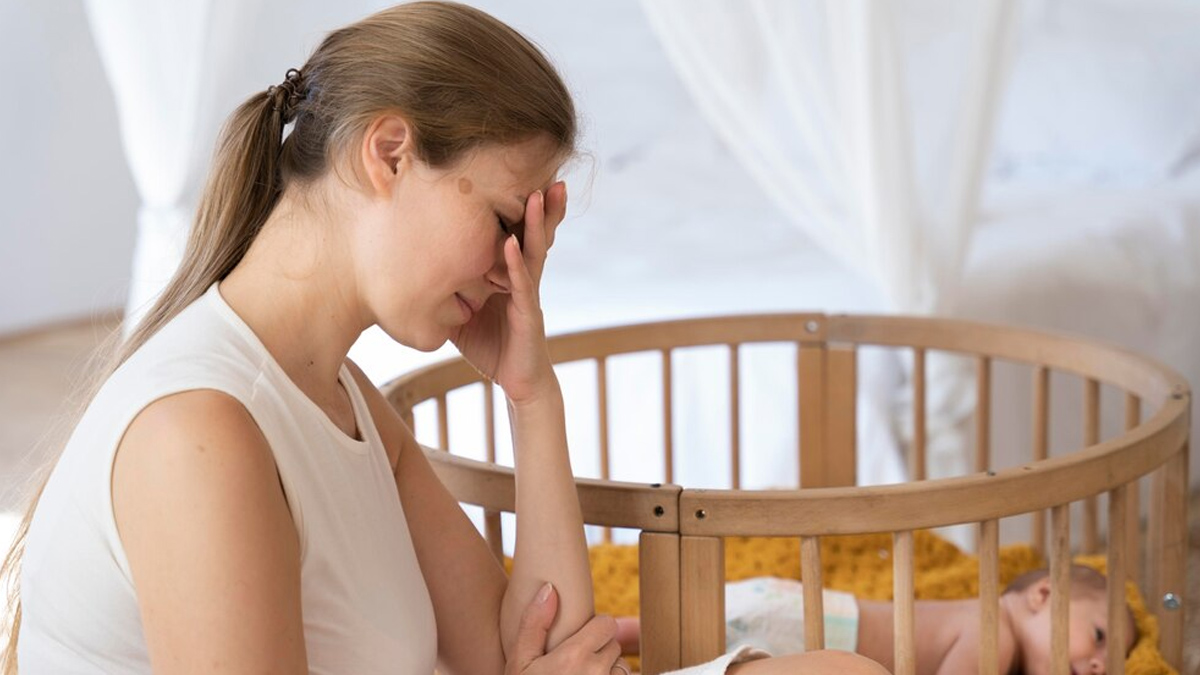
Having a baby is often described as one of the happiest moments in a woman’s life. But for many mothers, this joyful time can also bring unexpected feelings of sadness, fear, and confusion. This condition is known as postpartum depression (PPD), and it affects millions of women around the world.
Table of Content:-
To help us understand why this happens, we spoke to Dr Vikas Yadav, Senior Consultant in the Department of Obstetrics & Gynaecology and IVF Specialist at ShardaCare, Healthcity - Noida.
What Is Postpartum Depression?
Postpartum depression is a serious mental health condition that can occur after childbirth. It usually starts within the first few weeks after delivery, but can also begin during pregnancy or even several months later.
"Many women feel emotional ups and downs after giving birth, which is normal and called 'baby blues," says Dr. Yadav. "But when these feelings last longer than two weeks and interfere with daily life, it may be postpartum depression."
What Causes It?
According to Dr. Yadav, postpartum depression is caused by a mix of biological, emotional, and social factors. Here are the main reasons:
1. Hormonal Changes
“After childbirth, the levels of estrogen and progesterone in a woman’s body drop sharply,” explains Dr. Yadav. “These sudden changes can affect brain chemicals and lead to mood swings or depression.”

Also Read: How Many CT Scans Are Safe? Expert Explains The Risks And Benefits
2. Physical Stress
The body goes through major changes during pregnancy and childbirth. Lack of sleep, pain, and the physical recovery process can all add to a mother’s stress.
3. Emotional Pressure
“Many new mothers feel overwhelmed with their new responsibilities. They may worry if they’re doing things right or feel guilty if they’re not bonding with their baby,” says Dr. Yadav.
4. Lack of Support
Support from family, friends, and the partner is crucial. Without it, a new mother may feel isolated and helpless.
5. Personal or Family History of Depression
Women who have experienced depression in the past or have a family history of mental health issues are at a higher risk of developing PPD.
Signs to Watch Out For
Dr. Yadav advises new mothers and their families to watch for signs of postpartum depression, such as:
Feeling sad or hopeless most of the time
Losing interest in activities once enjoyed
Trouble sleeping or sleeping too much
Feeling tired all the time
Changes in appetite
Difficulty bonding with the baby
Thoughts of harming oneself or the baby
“If any of these symptoms last more than two weeks, it’s important to speak with a doctor,” he adds.

Also Read: 7 No-Seed Fruits and Vegetables and Their Benefits For Kidney Stones
Can It Be Treated?
Yes, postpartum depression can be treated. “Treatment depends on the severity,” says Dr. Yadav. “It can include counselling, support groups, medication, or a mix of these. The important thing is to seek help early.”
He also stresses the role of family and community support in a mother’s recovery. “We should never judge a woman for feeling depressed after childbirth. Instead, we must listen, support, and help her get the care she needs.”
Bottomline
Postpartum depression is not a weakness or a failure. It’s a medical condition that many women go through — and it’s okay to ask for help. Additionally, if you or someone you know might be suffering from postpartum depression, don’t ignore the signs. Talk to a doctor, a loved one, or a mental health professional.
Also watch this video
How we keep this article up to date:
We work with experts and keep a close eye on the latest in health and wellness. Whenever there is a new research or helpful information, we update our articles with accurate and useful advice.
Current Version
